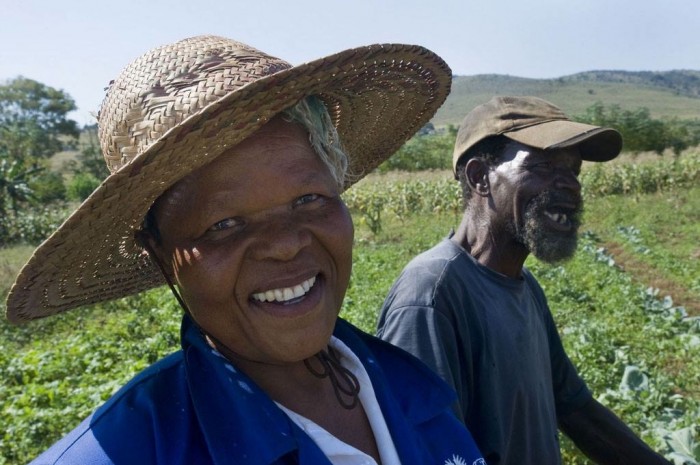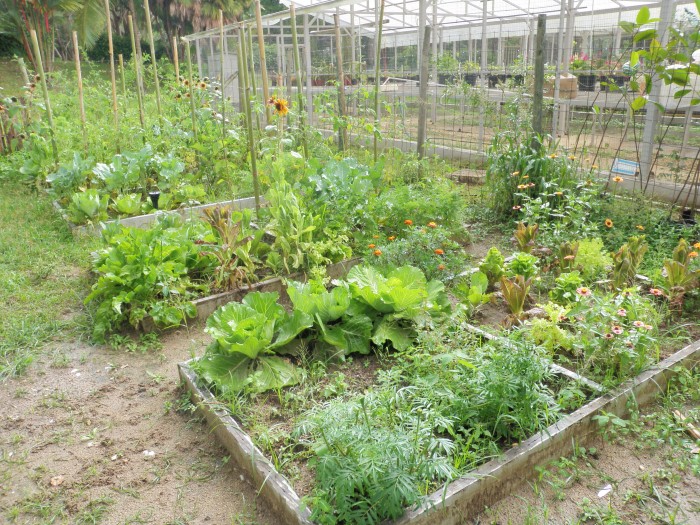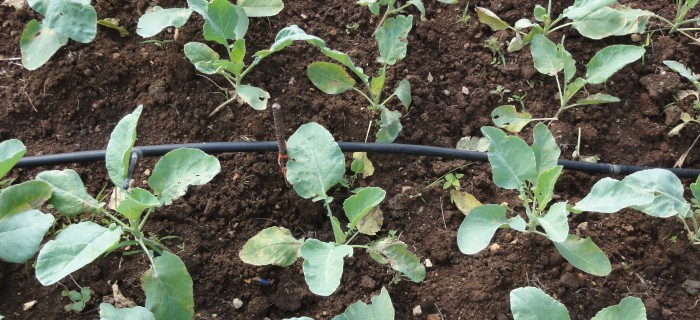This World Food Day, Agroecology is Center Stage
“Currently, most subsidies go to large agribusiness. This must change. Governments must support small farmers” – Hilal Elver, incoming Special Rapporteur for the Right to Food
The corporate-led food system uses vast amounts of water, land, and fossil fuels, and has done little to alleviate hunger. This year, a new Special Rapporteur on the Human Right to Food, Hilal Elver, was appointed by the United Nations Human Rights Council. In her debut speech as Special Rapporteur on September 19th—hosted by the Transnational Institute in Amsterdam, The Netherlands—she called for sweeping policy change. Small farms face shrinking numbers because the system itself is destroying their livelihoods and stripping them of their rights. The path to restoring the rights of farmers—as well as repairing the environment and growing food for all—is agroecology.
 Agroecology is at once the science of sustainable agriculture and a social movement that promotes a socially just and environmentally sustainable food system. It uses methods that enhance the productivity of a diverse spectrum of plants, animals, and insects, mimicking natural processes that complement agricultural systems, and creating synergies and beneficial ecological interactions on the land. Agroecology draws on ecology, political economy, social science, agronomy, and numerous other fields, making it a unique trans-discipline suited to dealing with an issue as complex as the current food system. [1. “Scientists’ Support Letter for the International Symposium on Agroecology, 18-19 September, 2014,” September 18, 2014, https://archive.foodfirst.org/wp-content/uploads/2014/09/2014.09.17_AgroecologyFAOLetter.pdf.]
Agroecology is at once the science of sustainable agriculture and a social movement that promotes a socially just and environmentally sustainable food system. It uses methods that enhance the productivity of a diverse spectrum of plants, animals, and insects, mimicking natural processes that complement agricultural systems, and creating synergies and beneficial ecological interactions on the land. Agroecology draws on ecology, political economy, social science, agronomy, and numerous other fields, making it a unique trans-discipline suited to dealing with an issue as complex as the current food system. [1. “Scientists’ Support Letter for the International Symposium on Agroecology, 18-19 September, 2014,” September 18, 2014, https://archive.foodfirst.org/wp-content/uploads/2014/09/2014.09.17_AgroecologyFAOLetter.pdf.]
Agroecology is not just a science, or a set of tools: it is a movement that “questions and defies the dominant food system and proposes its radical transformation where producers (peasants) are at the center of this social process.” [2. Clara Inés Nicholls, “Reflections on FAO’s International Symposium on Agroecology for Food Security and Nutrition Held at FAO in Rome 18-19 September, 2014,” September 22, 2014, https://archive.foodfirst.org/reflections-on-the-faos-international-symposium-on-agroecology-for-food-security-and-nutrition/.] By advocating a shift of power away from corporations to the people, it goes hand in hand with food sovereignty – the right of peoples to healthy and culturally appropriate food produced through ecologically sound and sustainable methods, and their right to define their own food and agriculture systems. Agroecology and food sovereignty call for a truly democratic food system, a system that recognizes that the millions living in poverty are not a mere negative externality, but a systemic social injustice.
 Elver’s speech coincided with the first International Symposium on Agroecology for Food Security and Nutrition hosted by the Food and Agriculture Organization of the United Nations. Attended by numerous experts from around the world, it was an opportunity to present findings and research that has shown that agroecology can keep up with the growing demand for food in a way that is environmentally and socially sustainable, unlike corporate-controlled industrial farming methods. While supportive of the UN agroecology symposium, a letter to the FAO signed by nearly 70 international food scientists challenged the members to take into account the full implications of agroecology, not merely its technical aspects, but also agroecology’s various political facets: “No approach can be called sustainable without explicit planning for and realization of procedural AND distributive justice”, said the letter. [3. “Scientists’ Support Letter for the International Symposium on Agroecology, 18-19 September, 2014.” Op Cit.] However, after attending the symposium, Clara Inés Nicholls, president of the Latin American Scientific Society for Agroecology (Sociedad Científica Latinoamericana de Agroecología, SOCLA) noted the absence of discussions about key issues in agroecology such as gender and access to land, seeds and water. SOCLA thanked the FAO for the opportunity to participate in the Symposium, but at the same time expressed that:
Elver’s speech coincided with the first International Symposium on Agroecology for Food Security and Nutrition hosted by the Food and Agriculture Organization of the United Nations. Attended by numerous experts from around the world, it was an opportunity to present findings and research that has shown that agroecology can keep up with the growing demand for food in a way that is environmentally and socially sustainable, unlike corporate-controlled industrial farming methods. While supportive of the UN agroecology symposium, a letter to the FAO signed by nearly 70 international food scientists challenged the members to take into account the full implications of agroecology, not merely its technical aspects, but also agroecology’s various political facets: “No approach can be called sustainable without explicit planning for and realization of procedural AND distributive justice”, said the letter. [3. “Scientists’ Support Letter for the International Symposium on Agroecology, 18-19 September, 2014.” Op Cit.] However, after attending the symposium, Clara Inés Nicholls, president of the Latin American Scientific Society for Agroecology (Sociedad Científica Latinoamericana de Agroecología, SOCLA) noted the absence of discussions about key issues in agroecology such as gender and access to land, seeds and water. SOCLA thanked the FAO for the opportunity to participate in the Symposium, but at the same time expressed that:
Agroecology in Latin America was created and grew without the official support of international organizations and donors, and we will continue working with or without support from the international cooperation. This has allowed us to stay true to our principles and advance an agroecological research, educational and dissemination agenda in favor of peasant agriculture which is not negotiable. [4. Nicholls, “Reflections by SOCLA on International Symposium.” Op Cit.]
Meanwhile, FAO Director-General Graciano Da Silva hailed the launch of a new Global Alliance on Climate Smart Agriculture at the UN Climate Summit in New York City. Climate Smart Agriculture (CSA) entails “sustainable intensification,” using biotechnology to increase yields and reduce labor, supposedly leading to a reduction of greenhouse gasses. CSA also involves the expansion of carbon markets, which many critics have observed, will generate new opportunities for agribusiness to profit from climate chaos while doing little to promote small-scale agroecology that cools the planet. The international peasant movement La Vía Campesina released a statement warning that CSA is a false solution to both climate change and hunger that will serve to further entrench global inequality and corporate power:
Ultimately, climate smart agriculture tries to cover-up and hide the need for genuine agriculture and land reform. It also hides, and lies about, the issue of scarcity of land and natural resources. Land and natural resources are only scarce for peasant and small holding farmers…The possibility of big profits with investments in carbon credits generated from farmlands involved in climate smart agriculture projects will increase speculation in the carbon market, leading to further “carbon land grabs” by large-scale investors and producers, and the further displacement of peasant and smallholder farmers…Under this climate smart agriculture framework, there is little hope of reducing and removing greenhouse gases, trying to solve food insecurity or any significant rural economic and social development. The problems of poverty, food insecurity and climate change are not market failures, but rather are structural flaws that will persist and worsen with its implementation. [5. La Via Campesina, “UN-Masking Climate Smart Agriculture,” Food First, accessed September 25, 2014, https://archive.foodfirst.org/press-releases/un-masking-climate-smart-agriculture/.]
 An estimated 400,000 people marched in NYC prior to the UN Climate Summit to denounce false solutions such as these. Protestors also denounced other false solutions such as natural gas fracking, which has been hailed as an emission-reducer by President Obama, British Prime Minister David Cameron and others. Rather, the many groups—including frontline communities and indigenous groups—called for systemic change that dismantles the structures of corporate monopoly power. This was further driven home by #floodwallstreet, a direct action in which thousands of people took to the streets of the Financial District in New York in protest of the role of corporations in worsening climate change. As such, they confronted “the system that both causes and profits from the crisis that is threatening humanity.” [6. Katherine Boehrer, “Flood Wall Street Protestors Assemble in New York,” Huffington Post, September 22, 2014, http://www.huffingtonpost.com/2014/09/22/flood-wall-street-photos_n_5861848.html.]
An estimated 400,000 people marched in NYC prior to the UN Climate Summit to denounce false solutions such as these. Protestors also denounced other false solutions such as natural gas fracking, which has been hailed as an emission-reducer by President Obama, British Prime Minister David Cameron and others. Rather, the many groups—including frontline communities and indigenous groups—called for systemic change that dismantles the structures of corporate monopoly power. This was further driven home by #floodwallstreet, a direct action in which thousands of people took to the streets of the Financial District in New York in protest of the role of corporations in worsening climate change. As such, they confronted “the system that both causes and profits from the crisis that is threatening humanity.” [6. Katherine Boehrer, “Flood Wall Street Protestors Assemble in New York,” Huffington Post, September 22, 2014, http://www.huffingtonpost.com/2014/09/22/flood-wall-street-photos_n_5861848.html.]
Agroecology gives us practical tools to produce food sustainably and reduce our carbon footprint, but it also involves redistributing land, resources and decision-making power away from corporations and financial institutions. Agroecology focuses on the most underserved communities within the food system, insisting that hunger is not due to lack of food, but rather to poverty and a lack of democracy. While large-scale, industrial agriculture lines the pockets of corporate input manufacturers, banks, and speculators; agroecology leverages local inputs and knowledge in service of small farmers, communities, and the environment.


 Help Food First to continue growing an informed, transformative, and flourishing food movement.
Help Food First to continue growing an informed, transformative, and flourishing food movement.




